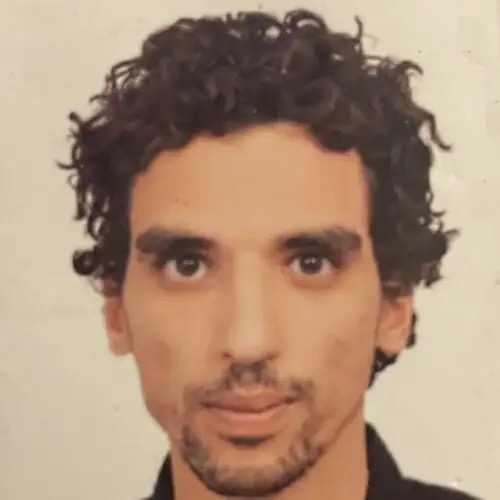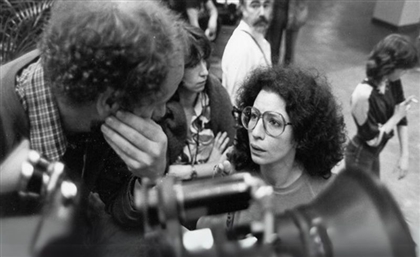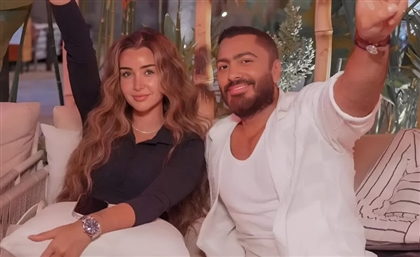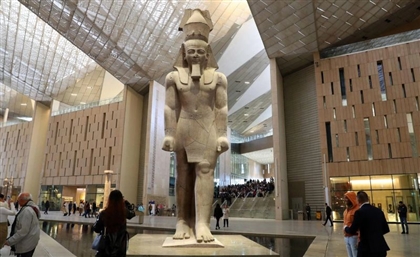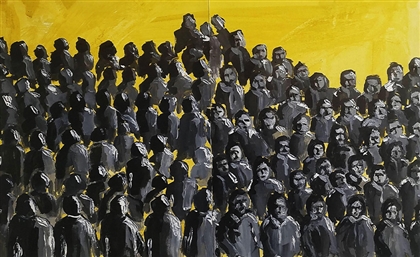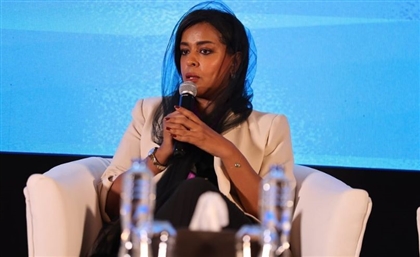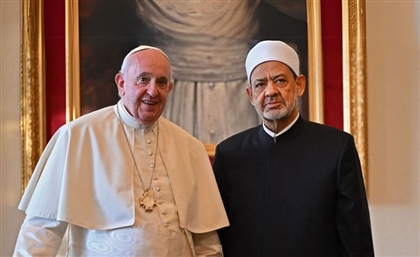Egyptian Short ‘My Brother, My Brother’ Is a Photograph That Never Was
Film as a tender eulogy, Abdelrahman and Saad Dnewar’s short film transforms grief into cinematic poetry.
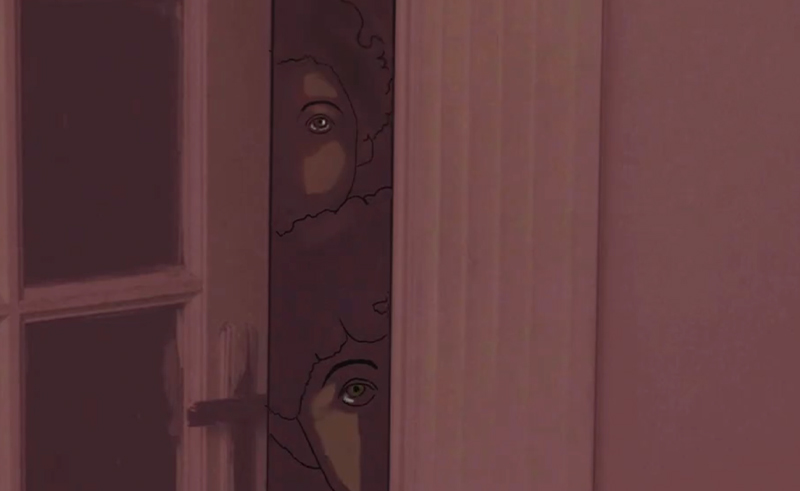
Federico Fellini once said, “Going to the movies is like visiting someone else’s dream.” When a film really works, it lets you step beyond the borders of your own life. You don’t just observe another’s world, you inhabit it. That’s how I felt after watching “My Brother, My Brother”. At random moments throughout the day, I’d find myself thinking back to it. Specific moments in the film would rise up in my head like memories, as if they were my own.
For a moment, you live someone else’s life, and return with fragments of their experience tucked into your own. The magic of cinema is that it lets us feel less alone. Maybe the film moved me so deeply because I’m a twin myself, and it opened the floodgates to memories of my own upbringing. “My Brother, My Brother” captures the sense of a shared life and the tragic detours that fate throws our way.

It was directed by Abdelrahman Dnewar and his late twin brother Saad, and premiered at the 2025 International Film Festival Rotterdam. It tells a personal story of grief. The Dnewar brothers blend delicate 2D animation with live-action footage. They do so to guide us on a journey through memory. We drift from inside their mother’s womb to the ache of inevitable separation. The story is told through a split perspective, with both twins sharing memories of their childhood and growing up.
The title, “My Brother, My Brother”, hints at this theme of duality: two brothers, two voices, two deaths, two memories slowly merging into one. At its core, the film’s power lies in the blurring between self and other. Scenes bleed into one another in a dream-like structure. It is as if their story was always meant to be told as one.

There’s one particular sequence that captures this idea of duality dissolving into oneness. A door creaks open, and light spills into the room. Two silhouettes emerge. We see the shadows of the two afro-haired twin brothers standing side by side. They begin to move toward each other. And for a fleeting moment, they become one. One shape. One presence. One soul. The sequence is poetic, simple, and deeply philosophical.
The film is filled with similar intimate and visually striking imagery. Another particularly memorable shot features three characters represented solely by four eyes within a single frame. This image powerfully reflects the narrative’s blurring of identity boundaries. These close-ups are not merely intimate; they are confrontational. They force the viewer to confront the ambiguity of the self. What happens when this sense of unity fractures? What remains when the elements that once made us whole begin to fall apart?

This dissolution of duality extends beyond narrative and is embedded in the film’s very form. Karim Marold’s cinematography plays a vital role in articulating this fluidity. The transitions between live-action and animation are so seamless that one forgets where one ends and the other begins. Another highlight is the soundtrack selection by Selim El Sadek, which includes Eluvium’s “Regenerative Being”. The track adds a haunting, ethereal quality to the film's emotional landscape.
Make no mistake, though, “My Brother, My Brother” deals with heavy themes, but it delivers them in a light-hearted manner. The film walks a delicate line between the profound and the playful. Like when one of the twins mistakenly pours Zamzam water into a car’s wiper water tank. It’s these small, tender nuances where you can see the twins’ personalities shine through.

“My Brother, My Brother” is all the more poignant knowing that director Abdelrahman Dnewar finished it in the wake of his twin Saad’s passing. The film becomes not just a tribute to their mother, but something much more meaningful. “My Brother, My Brother” is a sibling’s attempt to resurrect what was never recorded.
Throughout the film, we keep returning to one small detail. The fact that they have no childhood pictures. We learn that the only one that exists is a humorously awkward photo of them giving us their backs. In a lot of ways, “My Brother, My Brother” becomes the photograph that never was. In crafting this work, Dnewar does what so many grieving people wish they could. Through moving images, he brings back a loved one, if only for a moment. In that regard, the film is a rebirth of sorts.
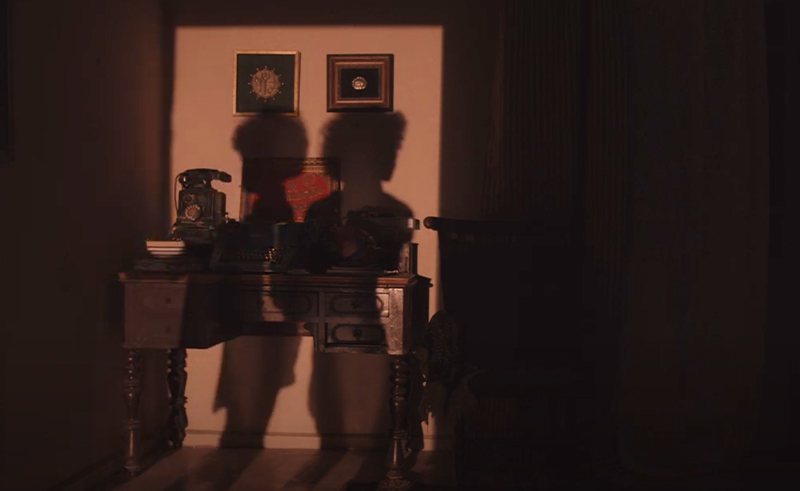
Abdelrahman Dnewar is undeniably one of the brightest emerging voices in cinema. “My Brother, My Brother” isn’t just a promising film; it’s a declaration of vision. Despite limited resources, the Dnewar brothers and their team have crafted a film of rare emotional depth and visual clarity. Imagine what they could achieve with a bigger canvas. Producers and studios should take notice. Cinema, at its most intimate, doesn’t just tell a story. It gives shape to memory. Dnewar knows how to speak in images. In his hands, memory isn’t just preserved, it’s reborn. I, for one, can’t wait to see what he creates next.
“My Brother, My Brother” will soon air on ARTE in both France and Germany. It’s currently screening in official competition in San Francisco, with upcoming selections at Annecy and Psarokokalo this June.
- Previous Article Abo Al Anwar Drops Laid Back Summer Single ‘Good Vibes’
- Next Article Saudi Geoparks Join UNESCO’s Global Geoparks Network for First Time







